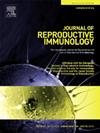SQSTM1/p62 drives radiosensitivity in cervical cancer via autophagy-independent mechanisms
IF 2.9
3区 医学
Q3 IMMUNOLOGY
引用次数: 0
Abstract
Cervical cancer comprises squamous cell carcinomas (SCCs), which are generally radiosensitive; meanwhile, adenocarcinomas respond poorly to radiation. Here, we explored the role of selective autophagy receptors in modulating radiosensitivity across these subtypes. We found that SQSTM1/p62 was highly expressed in human papillomavirus (HPV)-positive SCC cell lines (HeLa, ME180) and clinical SCC specimens, but was low or undetectable in HPV-negative adenocarcinomas and the C33A cell line. Clonogenic assays confirmed that HPV-positive cells exhibited greater radiosensitivity than C33A. Upon irradiation, only HPV-positive cells showed upregulation of p62 and DNA-damage response proteins, whereas C33A cells did not. Treatment with autophagy inhibitors (bafilomycin A1 and chloroquine) further increased p62 levels in HPV-positive cells but not in HPV-negative cells. The sustained low p62 levels in C33A cells, regardless of autophagy inhibition, may represent a distinctive biomolecular feature of HPV-negative cervical cancer. Notably, overexpression of Atg4B to block autophagic flux without affecting p62 expression had no impact on radiosensitivity in either cell type, whereas pharmacologic inhibition of autophagy selectively enhanced radiation-induced cytotoxicity in HPV-positive cells. Conversely, siRNA-mediated knockdown of p62 in HPV-positive cells attenuated radiation-induced growth suppression. Together, these data indicate that p62 promotes radiosensitivity in HPV-positive cervical cancer through a mechanism distinct from classical autophagy. Therefore, p62 represents both a predictive biomarker for radiation response and a potential target for radiosensitization strategies in HPV-positive tumors, while its unresponsiveness in HPV-negative cancers suggests the need for alternative approaches in that context.
SQSTM1/p62通过不依赖自噬的机制驱动宫颈癌的放射敏感性
子宫颈癌包括鳞状细胞癌(SCCs),通常对辐射敏感;同时,腺癌对辐射的反应很差。在这里,我们探讨了选择性自噬受体在调节这些亚型的放射敏感性中的作用。我们发现SQSTM1/p62在人乳头瘤病毒(HPV)阳性的SCC细胞系(HeLa, ME180)和临床SCC标本中高表达,但在HPV阴性的腺癌和C33A细胞系中低表达或检测不到。克隆实验证实hpv阳性细胞比C33A表现出更大的放射敏感性。照射后,只有hpv阳性细胞显示p62和dna损伤反应蛋白上调,而C33A细胞则没有。使用自噬抑制剂(巴菲霉素A1和氯喹)进一步增加hpv阳性细胞中的p62水平,但在hpv阴性细胞中没有。C33A细胞中持续的低p62水平,不管自噬是否受到抑制,可能代表了hpv阴性宫颈癌的一个独特的生物分子特征。值得注意的是,在不影响p62表达的情况下,过表达Atg4B阻断自噬通量对两种细胞类型的放射敏感性没有影响,而在hpv阳性细胞中,自噬的药物抑制选择性地增强了辐射诱导的细胞毒性。相反,在hpv阳性细胞中,sirna介导的p62敲低会减弱辐射诱导的生长抑制。总之,这些数据表明p62通过不同于经典自噬的机制促进hpv阳性宫颈癌的放射敏感性。因此,在hpv阳性肿瘤中,p62既是放射反应的预测性生物标志物,也是放射增敏策略的潜在靶标,而在hpv阴性肿瘤中,p62的无反应性表明,在这种情况下,需要其他方法。
本文章由计算机程序翻译,如有差异,请以英文原文为准。
求助全文
约1分钟内获得全文
求助全文
来源期刊
CiteScore
6.30
自引率
5.90%
发文量
162
审稿时长
10.6 weeks
期刊介绍:
Affiliated with the European Society of Reproductive Immunology and with the International Society for Immunology of Reproduction
The aim of the Journal of Reproductive Immunology is to provide the critical forum for the dissemination of results from high quality research in all aspects of experimental, animal and clinical reproductive immunobiology.
This encompasses normal and pathological processes of:
* Male and Female Reproductive Tracts
* Gametogenesis and Embryogenesis
* Implantation and Placental Development
* Gestation and Parturition
* Mammary Gland and Lactation.

 求助内容:
求助内容: 应助结果提醒方式:
应助结果提醒方式:


